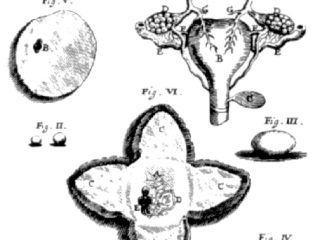Antoine Le Grand on Human Bodily Identity over Time
| Date: | 23 February 2018 |
| Author: | Han Thomas Adriaenssen |
In the Principles, Descartes famously claimed that ‘the nature of matter, or body considered in general’ is to be ‘extended in length, breadth and depth’ (AT VIIA 42, CSM I 224). As the wording makes clear, what Descartes is offering here, is a general...
Cavendish contra contextualism
| Date: | 09 February 2018 |
| Author: | Laura Georgescu |
"Wherefore I beseech my readers to be so charitable, and just, as not to bury my work in the monuments of other writers, but if they will bury them, let it be in their own dust, or oblivion, for I had rather be forgotten, then scrape acquaintance, or...
Are Space and Time Just Relations? On Early Modern British Relationists
| Date: | 26 January 2018 |
When you walk to the shops, or take a train to Amsterdam, you are moving through space. From second to second, you are ageing in time. Yet what are space and time? Today, there are two popular answers.
If a robot lied to us
| Date: | 12 January 2018 |
| Author: | Oberto Marrama |
In a passage in the Treatise on the Emendation of the Intellect, Spinoza claims that, under certain circumstances, some individuals "must be regarded as automata, completely lacking a mind" (TIE, 48; Curley 1985, 22). Examples that employ soulless automata...
Bacon on the classification of natural processes
| Date: | 15 December 2017 |
| Author: | Doina–Cristina Rusu |
Within Aristotelian philosophy, imperfect mixtures occupy a singular place: they are the only bodies that do not have a substantial form of their own. This entails that bodies such as meteors and other meteorological bodies – which qualify as imperfect...
(Enlightenment) vitalism and mainstream science
| Date: | 01 December 2017 |
In some respects, the history of science is still written by the victors. Even if the categories of actors that we investigate have broadened – from artisans and magi to practitioners of ‘subaltern sciences’, or from Galileo and Descartes to Athanasius...
The Tell-Tale Heart
| Date: | 17 November 2017 |
| Author: | Lukas Wolf |
Within natural theology, the heart and circulatory system has long been an icon of intelligent design. Not only does the heart so admirably show the craftsmanship of God, but William Harvey’s discovery of the circulatory system was considered exemplary of...
What Is an Error? Wittgenstein’s Voluntarism
| Date: | 03 November 2017 |
| Author: | Martin Lenz |
Imagine that you welcome your old friend Fred in your study. Pointing at the door, he asks you whether he should shut the window. You’re confused. Did Fred just call the door a window? He’s getting old, but surely not that old. You assume that Fred has...
What did I learn from applying for an ERC Starting Grant? The half-full glass.
| Date: | 20 October 2017 |
| Author: | Andrea Sangiacomo |
In the last few weeks I attended two Spinoza conferences (on both sides of the Atlantic). I spent the last ten years working on Spinoza. I consider him a friend. Yet, for the first time, I felt that I was somehow disconnected from the surrounding...
What’s the point of a history of ideas? Or, on Bacon and the cyclops
| Date: | 06 October 2017 |
| Author: | Laura Georgescu |
There’s no history of the world without a history of ideas. Or even, perhaps – without a history of ideas, all knowledge is kind of useless. These seem to be the consequences of a brief, somewhat cryptic, and deceptively simple remark that Francis Bacon...











![Polyphemus by Hendrick van der Burgh [Public domain], via Wikimedia Commons](/filosofie/organization/departments/history/gcmemt/blog/what_s-the-point-of-a-history-of-ideas_-or_-on-bacon-and-the-cyclops!attachment?c=images/blog-image-normal.jpg)